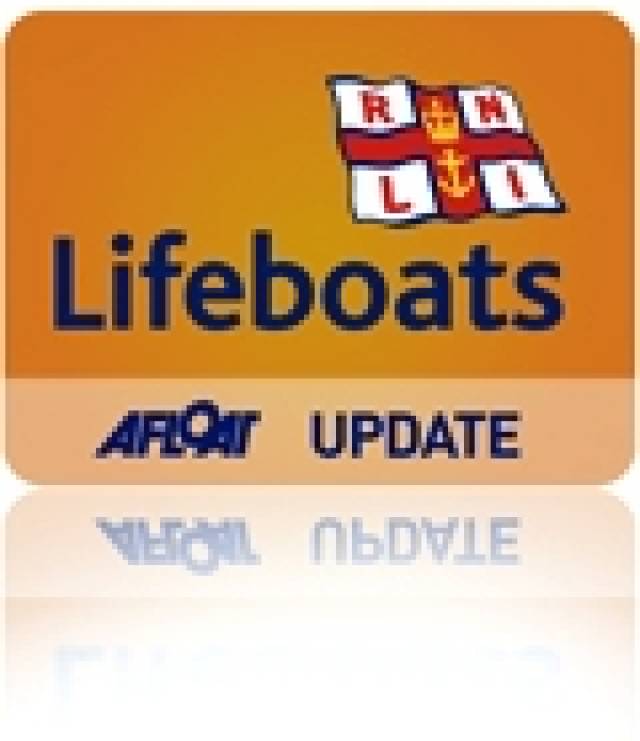Both Portrush Lifeboats were in action on Saturday afternoon (15th October) to rescue four people in an overturned boat at the Barmouth at Portstewart.
Both boats were launched at 15.50 hours on a wet dark afternoon after reports had been received of an overturned rib. When the Inshore boat arrived on scene there was a heavy 2 metre swell. Three people were on top of the rib and one in the water.
The volunteer ILB crew got the person in the water into the lifeboat by which time the All-weather lifeboat was on scene. All persons were then transferred to the ALB and taken to Portrush.
All were wearing wetsuits and did not require medical attention.
Robin Cardwell LOM stated
'This was a perfect example of team work between the two crews of the lifeboats from Portrush There was no hesitation in the volunteer crews responding to this shout. Each man knew what he had to do to bring the four people and their rib ashore'.
More from UK coastguard source here:
Belfast Coastguard received a '999' call from a member of the public at 3:48 pm informing them that they had witnessed a small boat capsize and there were people in the water. Coastguard Rescue Officers from Coleraine were sent to the scene. The Portrush inshore and all weather RNLI lifeboats were requested to launch and the Irish Coastguard rescue helicopter from Sligo was scrambled.
Steve Carson, Watch Manager, Belfast Coastguard, says:
"The inshore lifeboat was first on scene and discovered one person in the water and a further five people on the upturned hull of a Rigid Hull Inflatable Boat (RHIB). The conditions on scene were challenging with a large sea swell.
All six people have now been transferred to the all weather lifeboat and taken to Portrush Harbour and do not require further medical assistance.
The RHIB is being towed to harbour by the lifeboat.
We would like to remind the public that if they witness an incident along the shoreline or on the coast to ring '999' and ask for the Coastguard. Swift action from the member of the public this afternoon greatly assisted in the rescue of the six people in the water."
































































